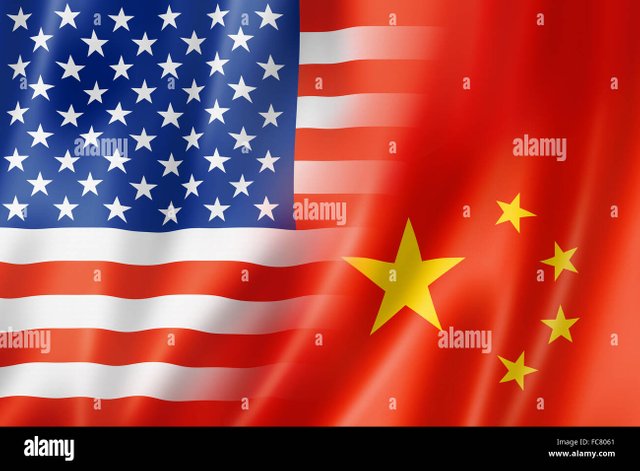Nancy Pelosi's visit to Taiwan in early August, the Chinese military conducted some of its largest military drills ever on the island.
The People's Liberation Army (PLA) even fired missiles over Taiwan, the democratically-ruled island that the Chinese Communist Party claims as its sovereign territory despite never having had control of it. Chinese airplanes swarmed across the Taiwan Strait.
What some observers and officials feared would be a "new normal" across the strait was established by those Chinese military drills: a more constant PLA presence moving ever-closer to Taiwan.
Meanwhile, US officials swore that Washington would continue on its current course and would confront China's coercive techniques.
Two guided-missile cruisers from the US Navy were transported across the strait on Sunday. China now says it is its "internal waters." According to the United Nations Convention on the Law of the Sea, the strait, according to the US and others, is international seas.
According to Collin Koh, research scholar at the S. Rajaratnam School of International Studies in Singapore who maintains a database on the transits, it was the first time the US Navy had dispatched two cruisers through the strait in at least four years.
"Having two instead of the usual one vessel to do this mission is definitely a bigger signal of protest against not only Beijing's recent military drills around Taiwan after the Pelosi visit, but also in response to Beijing's attempt to subvert the legal status of the waterway and the long-standing freedom of navigation rights through the area," Koh said.
It came as no surprise that US warships conducted the voyage on Sunday. They have recently completed scores of such excursions, and US officials have stated that transits will continue.
Analysts found the lackluster response from Beijing to be unexpected.
The Eastern Theater Command of the Chinese military claimed it kept watch over the two ships, kept a high alert, and was "prepared to foil any provocation."
There has been a bigger reaction to transits in the past. Col. Shi Yi, spokesman for the PLA's Eastern Theater Command, referred to the US as the "destroyer of peace and stability in the Taiwan Strait" after the destroyer USS Benfold passed through the strait in July.
While earlier this month, Qin Gang, the Chinese ambassador to Washington, urged the US to stop naval transits, claiming that they heighten tensions and encourage "Taiwan independence separatist elements."
In answer to a query regarding potential impending transits, Qin told reporters in Washington, "If there's any maneuver harming China's territorial integrity and sovereignty, China would respond."
The expert Koh pointed out Beijing's more subdued pronouncements on Sunday.
He asked, citing three potential explanations, "Why didn't the Chinese go beyond that given their earlier strong resistance to Washington's declared intent to continue such transits?"
First of all, Beijing might be concerned about "international fallout," since any move to restrict US Navy access to the strait could be interpreted as endangering the rights of ships from other countries to use the waterway.
Second, Beijing suspended important military connections with Washington following Pelosi's trip to Taiwan, increasing the likelihood of miscommunications during any interactions between the US Navy and the PLA Navy.
Thirdly, Koh noted that there are other areas of cooperation between Washington and Beijing, and China might not want to put undue pressure on those.
It makes no sense, he argued, to incite even more intense tensions that can develop into a fight.
A fourth hypothesis is put out by Carl Schuster, a former director of operations at the Joint Intelligence Center of the US Pacific Command in Hawaii.
"I believe that (Chinese President Xi Jinping) will refrain from taking any action that could increase the chances of the Republicans and other China hawks winning the 2018 elections. He opposes a House and Senate that might pass laws strengthening Taiwan's backing or restricting Chinese influence and investment in the US "said Schuster.
The employment of two ships in the most recent strait passage, he added, may not have been intended as a statement so much as it was practical military strategy.
"It certainly seem smart to have two warships transit those regions together," Schuster said, referring to China's warnings and recent missile launches into international waters.
Additionally, he continued, anticipate routine transits of the strait by the US Navy.
There is no official disagreement about its status because it is considered international waters under international law, he said. The US Navy transit successfully and quietly states that.
